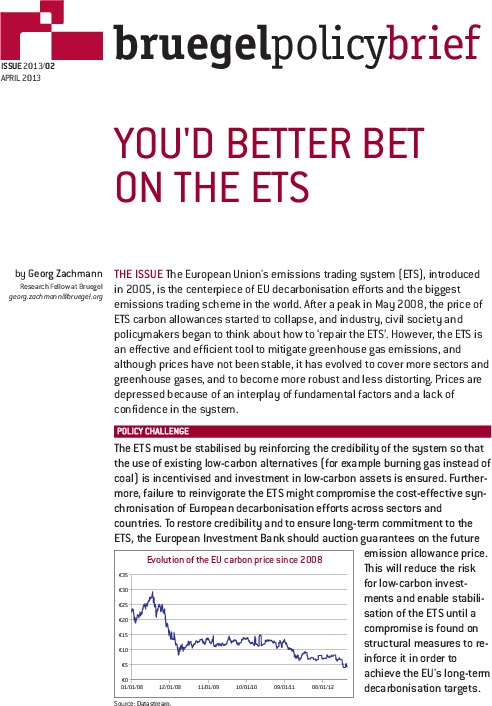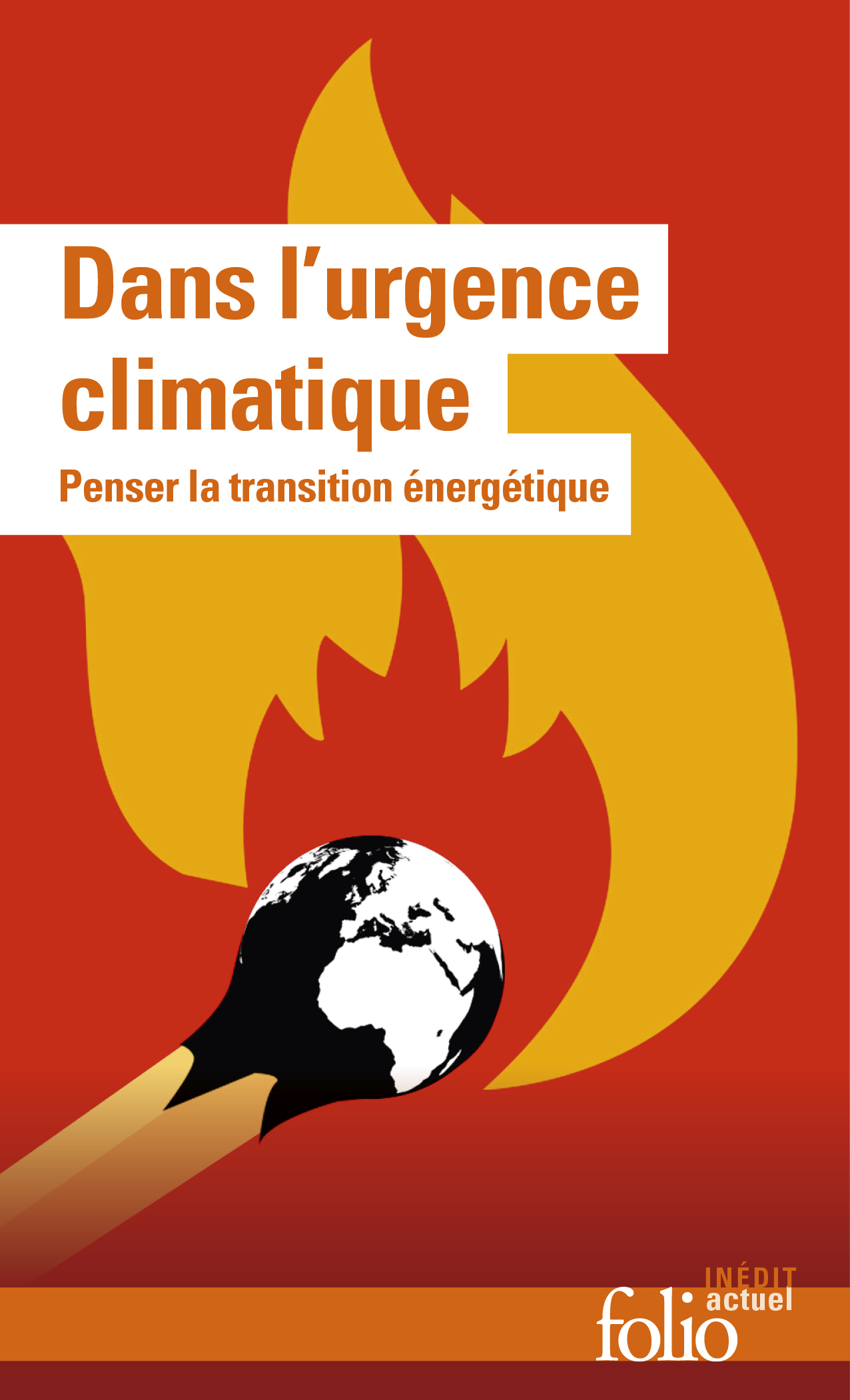Policy Brief
You’d better bet on the ETS
The issue: The European Union's emissions trading system (ETS), introduced in 2005, is the centerpiece of EU decarbonisation efforts and the biggest emissions trading scheme in the world. After a peak in May 2008, the price of ETS carbon allowances started to collapse, and industry, civil society and policymakers began to think about how to ‘repair the ETS’.
The issue: The European Union’s emissions trading system (ETS), introduced in 2005, is the centerpiece of EU decarbonisation efforts and the biggest emissions trading scheme in the world. After a peak in May 2008, the price of ETS carbon allowances started to collapse, and industry, civil society and policymakers began to think about how to ‘repair the ETS’. However, the ETS is an effective and efficient tool to mitigate greenhouse gas emissions, and although prices have not been stable, it has evolved to cover more sectors and greenhouse gases, and to become more robust and less distorting. Prices are depressed because of an interplay of fundamental factors and a lack of confidence in the system.
Policy challenge
The ETS must be stabilised by reinforcing the credibility of the system so that the use of existing low-carbon alternatives (for example burning gas instead of coal) is incentivised and investment in low-carbon assets is ensured. Further-more, failure to reinvigorate the ETS might compromise the cost-effective synchronisation of European decarbonisation efforts across sectors and countries. To restore credibility and to ensure long-term commitment to the ETS, the European Investment Bank should auction guarantees on the future emission allowance price.This will reduce the risk for low-carbon investments and enable stabilisation of the ETS until a compromise is found on structural measures to reinforce it in order to achieve the EU’s long-term decarbonisation targets.










